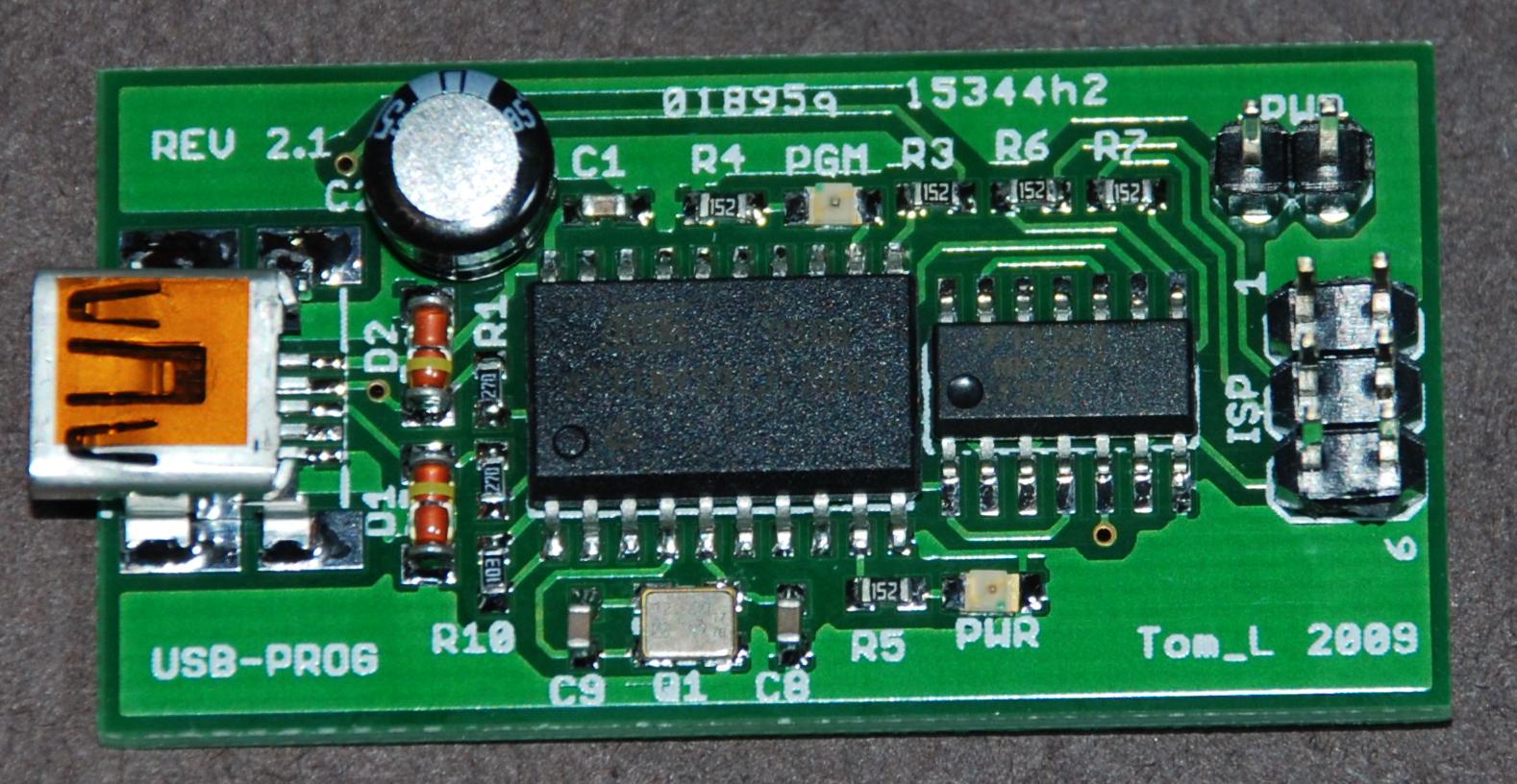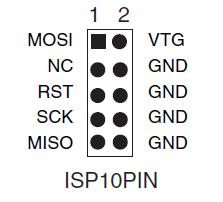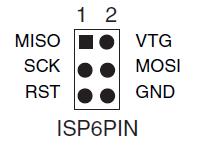Indoor: (F) / -17.8 (C)
How To
- Main HomePage
- Main HowTo Page
- LED Blink - Delay
- LED Blink - Int.
- PWM Output
- RS232 Output
- A/D Conversion
- A/D PWM Control
- Using Avrdude
Links
Using Avrdude
So you're just getting started with Atmel AVR programming and you can't figure out how to use AVRDUDE. This is not intended to be an exhaustive guide to AVRDUDE, rather a simple guide to some of the command line switches you will need to know to use AVRDUDE. The chip chosen for the example is the atmega168 which is a common 8 bit AVR. If you are using a different AVR chip you can refer to the AVR FUSE CALCULATOR to find the desired settings for your chip.
In this example we will be using the USB-Tiny programmer as the hardware device.

This programmer has been supported by AVRDUDE 5.5 and forward.
For Windows users open a CMD line window for the following tasks.
FUSE BITS
"Whats my fuses?"
People get 0 and 1 all mixed up when handling fuses, right. So one practical way to make sure a 'ON' is a '0' is to check:
1) Can you communicate with the chip through
ISP?
2) What is the SPI fuse bit set to?
3) That is what 'ON' is.
To read
the current device lfuse and hfuse to
the console:
avrdude -c usbtiny -p m168 -U lfuse:r:con:r -U hfuse:r:con:r
To read
the current devide lfuse and hfuse to
a file:
avrdude -c usbtiny -p m168 -U lfuse:r:C:\lfuse.txt:r -U
hfuse:r:C:\hfuse.txt:r
To write
the desired fuse settings to lfuse:
avrdude -c usbtiny -p m168 -U lfuse:w:0x62:m -u
To write
the desired fuse settings to hfuse:
avrdude -c usbtiny -p m168 -U hfuse:w:0xDF:m -u
To write
the desired fuse settings to efuse:
avrdude -c usbtiny -p m168 -U efuse:w:0xF9:m -u
(Note: in the above example we used the factory default settings for safety)
PROGRAM FILE
To write
a hex file to the device:
avrdude -c usbtiny -p m168 -U flash:w:"C:\test.hex":a -D -e
To verify
the contents of the device with the hex file:
avrdude -c usbtiny -p m168 -U flash:v:"C:\test.hex":a -D -e
To
write the contents of the device to a file:
avrdude -c usbtiny -p m168 -U flash:r:"C:\test.hex":a -D -e
Following are the standard Atmel programmer pinouts. Not to
confuse you, these
are not all available on all chips. Check your chip's data sheet to
determine which plug pinout applies.
 |
 |
 |
 |